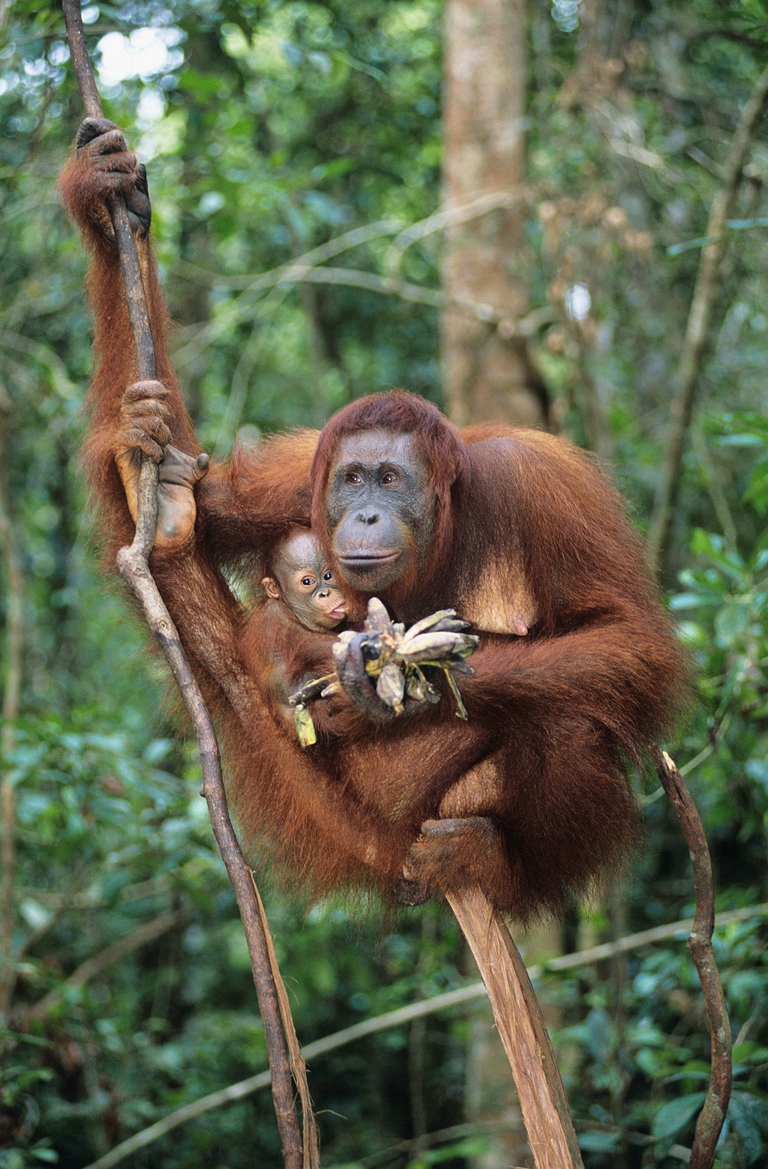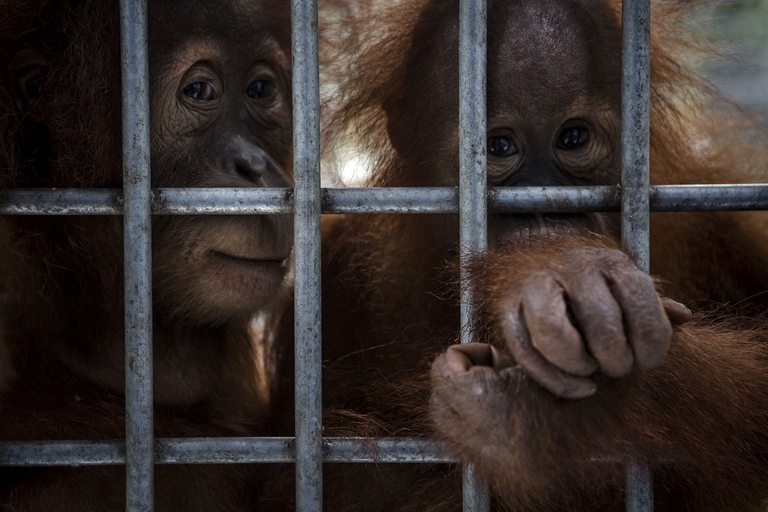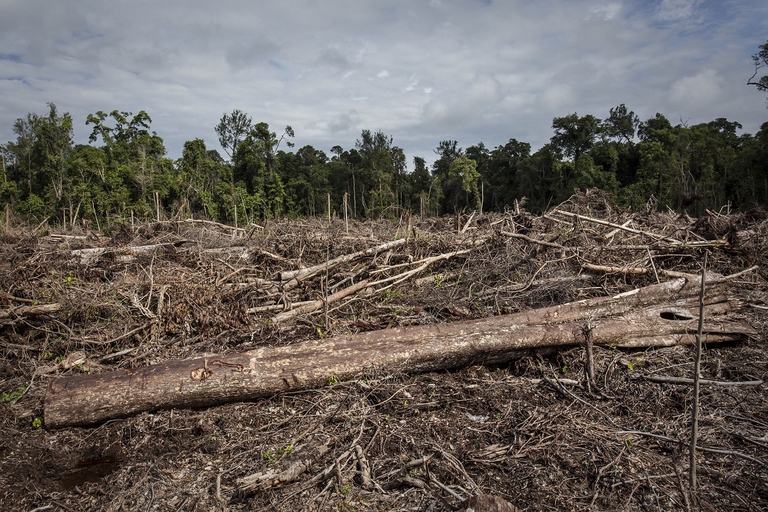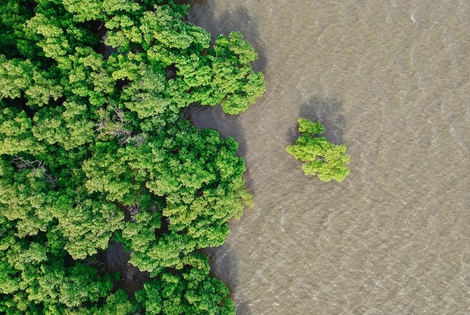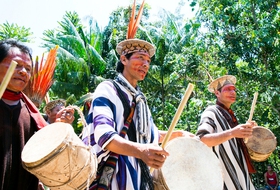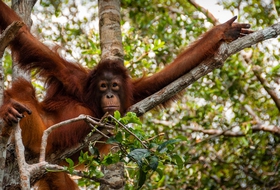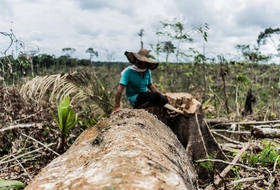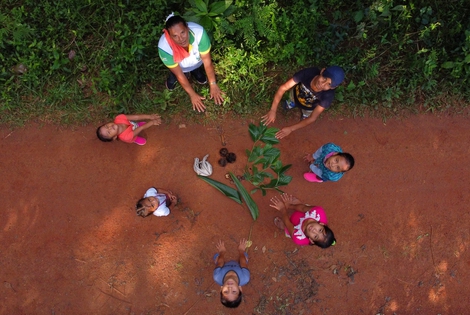
The Amazon became an alternative classroom during the pandemic. Now, the educational forest in Batraja, Bolivia, lives on to teach children and adults the value of nature.
Bornean orangutans (Pongo pygmaeus) are dying at unprecedented rate, inexorably approaching extinction. And even if we think we aren’t, we actually are and will always be involved in the disappearance of one of the Planet’s most charismatic and most loved species. A new study published in the journal Current Biology reveals that more than 100,000
Bornean orangutans (Pongo pygmaeus) are dying at unprecedented rate, inexorably approaching extinction. And even if we think we aren’t, we actually are and will always be involved in the disappearance of one of the Planet’s most charismatic and most loved species. A new study published in the journal Current Biology reveals that more than 100,000 orangutans died in Borneo just between 1999 and 2015, and that the island’s population has dramatically dropped.
The main cause behind the decline of these big apes is the unsustainable exploitation of natural resources in tropical areas. The effects of the destruction of ecosystems rich in biodiversity on wildlife are still little known though. Researchers have analysed data from on-site investigations, models of nest distribution, and remote sensing figures in order to assess the impact resources and land exploitation has on orangutans’ distribution and density. According to the study, half the orangutan population, which in 2016 were declared “critically endangered” by the IUCN Red List, vanished between 1999 and 2015 due to deforestation and new plantations.
Along with the destruction of their habitat, orangutans often fall victims of hunters and farmers who kill them for their meat, for their babies to be sold on the black market, and to protect their plantations. According to estimates, between 70,000 and 100,000 orangutans now survive in Borneo but if substantial conservation measures aren’t taken, 45,000 more individuals are expected to vanish over the next 35 years. Researched have identified 64 different groups of orangutans but only 38 of them count more than 100 individuals, the minimum number to be considered a vital group.
Local populations of orangutans have dropped up to 75 per cent according to study. “I expected to see a fairly steep decline, but I did not anticipate it would be this large,” said Serge Wich, a co-author on the report at Liverpool John Moores University. “When we did the analyses, we ran them again and again to figure out if we had made a mistake somewhere. You think the numbers can’t be that high, but unfortunately they are.”
In order to prevent these gentle primates from vanishing, we need to concretise social and political initiatives, including a better management of land use, resource exploitation and infrastructure development. Also, local population has to be taught how valuable orangutans are. “We need to work with people to help them understand that orangutans are not dangerous and that it’s illegal to kill them,” Wich said. “One approach that might work is to have Indonesian and Malaysian role models raise awareness of orangutans through social media”. Considering the huge impact oil palm plantations have on oraguntans, consumers too can make a difference by opting for brands that use only sustainable palm oil.
Siamo anche su WhatsApp. Segui il canale ufficiale LifeGate per restare aggiornata, aggiornato sulle ultime notizie e sulle nostre attività.
![]()
Quest'opera è distribuita con Licenza Creative Commons Attribuzione - Non commerciale - Non opere derivate 4.0 Internazionale.
The Amazon became an alternative classroom during the pandemic. Now, the educational forest in Batraja, Bolivia, lives on to teach children and adults the value of nature.
Our species took its first steps in a world covered in trees. Today, forests offer us sustenance, shelter, and clean the air that we breathe.
Bangladesh suffered widespread damage as a result of Cyclone Amphan. Yet the Sundarbans mangrove forest acted as a natural barrier protecting the country from further destruction, as it has done countless times before.
On top of a 2.4 million dollar compensation, the indigenous Ashaninka people will receive an official apology from the companies who deforested their lands in the 1980s.
The tapir was reintroduced into Brazil’s Atlantic Forest, the country’s most at-risk ecosystem. The species can play a key role in the forest’s recovery.
Forests are home to 80 per cent of the world’s terrestrial biodiversity. This year’s International Day of Forests highlights the urgent changes needed to save them.
After a legal battle that lasted two years, Indonesia’s Supreme Court has revoked the permit to mine for coal in the forests of South Kalimantan in Borneo.
The list of human and animal victims of the Australia wildfires keeps growing – one species might already have gone extinct – as the smoke even reaches South America.
Areas where the FARC guerrilla used to hold power in Colombia have faced record deforestation. Farmers cut down trees, burn land and plant grass for cows. Because, “what else can we do for a living here in the Colombian Amazon”? An intimate report from the heart of the felled forest in Caquetá.
